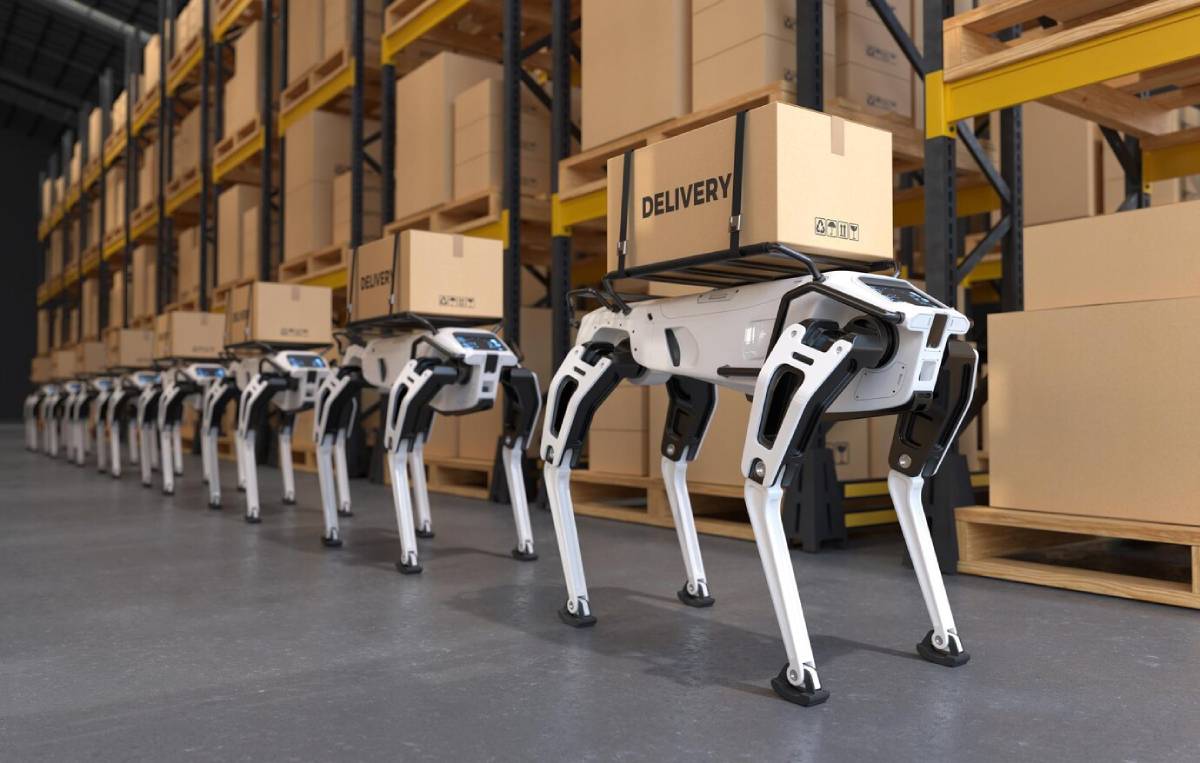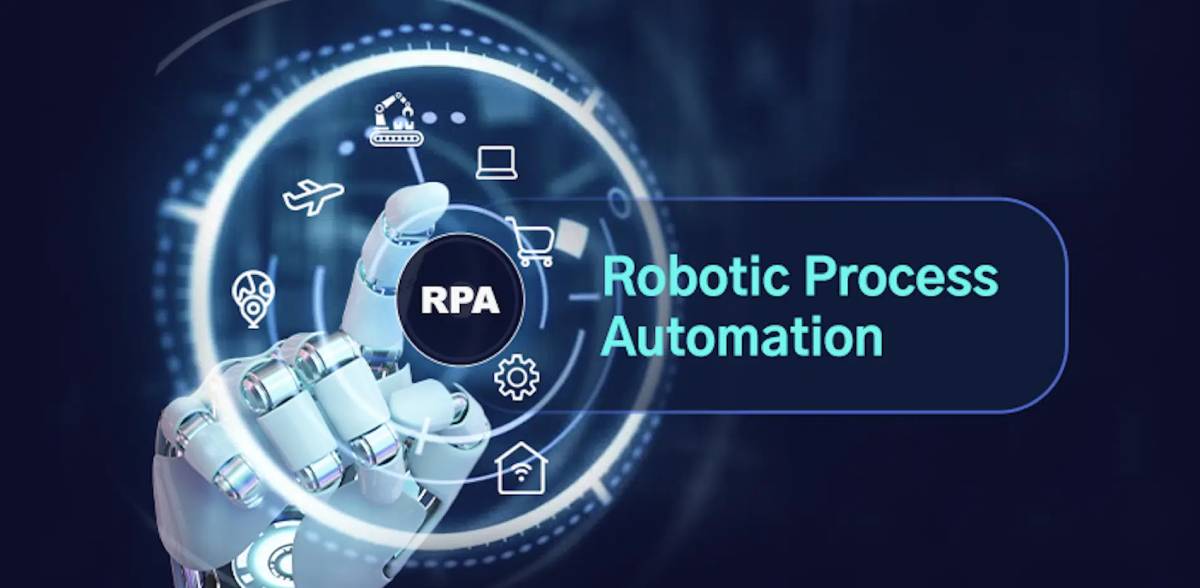
Enhancing Order Fulfilment with AI Automation
Artificial intelligence (AI) is changing the supply chain and logistics game. One key area where AI is making significant strides is order fulfilment. This blog looks at how AI automation improves order fulfilment, covering the benefits and the future it holds for logistics.
Recently, the logistics sector has undergone a tech revolution, led by AI. Businesses must meet rising consumer demands, so efficient order fulfilment is crucial now more than ever. Enter AI automation, a game-changer reshaping how companies handle order fulfilment. But what exactly does this entail, and why does it matter?
Using AI in order fulfilment means using smart algorithms and machine learning. This helps automate many steps, like inventory management, shipping, and delivery. This not only increases efficiency but also enhances accuracy and reduces operational costs. Misconceptions about AI’s abilities and limits still exist. We will address these in this detailed exploration.
AI automation isn’t just for big companies. It’s becoming easier for small and mid-sized businesses to access. Cloud-based AI solutions let small logistics operations use smart tools. They don’t need costly infrastructure anymore. AI is now a standard tool in many industries. It helps with real-time tracking and dynamic order routing.
Key Benefits of AI in Order Fulfilment
Why It Matters
AI automation in order fulfilment isn’t just a trend; it’s a must in today’s fast market. The primary benefits of integrating AI into order fulfilment processes include:
- Increased Efficiency: AI systems process large data sets faster than people. This results in faster decision-making and order processing, directly impacting customer satisfaction. AI can quickly send an order to the closest warehouse with stock, significantly reducing fulfilment time.
- Improved Accuracy: AI algorithms reduce human errors in picking orders and managing inventory. This precision helps customers get the right products, building trust and brand loyalty. AI-driven verification systems can spot and flag issues before customers see them.
- Cost Reduction: Automating repetitive tasks lets businesses significantly reduce labour costs. Furthermore, AI optimises resource allocation, reducing waste and improving overall profitability. AI can spot packing inefficiencies and suggest changes to workflows, which can save time and materials.
- Scalability: As businesses grow, so do their order fulfilment needs. AI systems can scale up easily. They handle more data without losing performance or accuracy. AI can handle changing order volumes during busy seasons without needing extra human help, unlike traditional systems.
- Data-Driven Insights: AI offers valuable insights into customer behaviour and market trends. This helps businesses make smart choices and stay ahead of their competitors. These insights can shape marketing strategies and stock buying choices, providing a big edge in business.
Real-Life Applications
Many companies now use AI automation for order fulfilment. They enjoy significant benefits. For instance:

- Amazon: Amazon’s AI robots in warehouses have changed their logistics. They help process orders faster and more efficiently. Humans and robots work together. AI helps move goods smoothly for better operations.
- Ocado: This UK online supermarket uses AI to improve delivery routes and automate its warehouses. Its unique platform uses machine learning. It manages thousands of orders each day, needing little human help.
- Zara: Zara uses AI to forecast demand and manage inventory. This helps stock products that match local customer tastes, reducing waste and increasing sales.
AI can adapt and scale across industries and company sizes. Here are some examples.
Additional Expert Tips & Common Mistakes to Avoid
Best Practices Beyond the Basics
To make the most of AI in order fulfilment, businesses should keep these expert tips in mind:
- Invest in Quality Data: AI systems work best with high-quality data. Ensuring accurate and comprehensive data collection is paramount for successful AI implementation. Poor data leads to poor outcomes, regardless of how advanced the AI model may be.
- Continuous Learning: AI systems thrive on continuous learning and adaptation. AI models need regular updates and training to stay effective and relevant. Companies must set aside resources for updating data and retraining models, which is key to their AI maintenance strategy.
- Integration with Existing Systems: Integrating AI with current ERP and supply chain systems is key to unlocking AI’s full benefits. Custom APIs and middleware can help bridge legacy systems with modern AI platforms.
- Human-AI Collaboration: Encourage collaboration between AI systems and human workers. Help your team understand AI insights. They can use this knowledge to enhance their workflows.
Common Mistakes and Misconceptions
Despite its advantages, businesses often encounter challenges when implementing AI in order fulfilment. Common pitfalls include:
- Relying too much on technology can be risky: AI is a strong tool, but it should support human skills, not take their place. A balanced approach ensures the best outcomes, especially when nuanced decision-making is required.
- AI systems need human oversight: This helps solve unexpected problems and ensures we meet ethical standards. In sensitive industries, monitoring regulatory compliance is crucial when using AI.
- Underestimating Implementation Costs: Initial setup and integration costs can be substantial. Businesses should plan and budget accordingly to avoid financial strain. A phased implementation plan can help spread costs over time and reduce risk.
- No Success Metrics Defined: It’s tough to measure AI success without clear KPIs. Metrics include order accuracy, fulfilment speed, error reduction, and customer satisfaction.
Advanced Insights
Unique Industry Perspectives
The logistics industry is on the cusp of an AI-driven transformation. Experts say AI will keep evolving. It will offer smarter solutions for order fulfilment. Future advancements may include:

- Predictive Analytics: AI will use predictive analytics more often. It will help predict demand changes and optimise inventory, reducing the chances of running out of stock or having too much. Predictive models can also anticipate seasonal spikes and guide workforce planning.
- Autonomous Delivery Vehicles: More companies use autonomous vehicles and drones for delivery. This trend boosts delivery efficiency and reduces the need for human workers. Companies like FedEx and UPS are already testing these technologies in select markets.
- Robotic Process Automation (RPA): AI will streamline back-end operations beyond physical logistics. RPA tools can automate tasks like order entry, invoicing, and customer communication, creating a fully connected fulfillment cycle.
- Better Customer Experience: AI chatbots and virtual assistants offer quick order tracking and help. This will make the overall customer experience better. These systems can manage thousands of queries at once. They do this with great accuracy and personalisation.
- Hyperpersonalization: AI could change how we fulfil orders. It can select packaging styles, delivery times, and communication methods that match each customer’s preferences.
Conclusion: Enhancing Order Fulfilment with AI Automation
AI automation in order fulfilment is more than just technology. It’s necessary for businesses that want to succeed in today’s competitive logistics world. AI helps companies boost efficiency, lower costs, and enhance customer service.
AI-driven order fulfilment is the future. Businesses that adopt these technologies early are more likely to outpace their competitors. AI can reshape efficiency and scalability. It helps streamline warehouse operations and provides predictive insights.
AI technology is growing fast. Now is the time for businesses to invest in AI solutions to stay ahead. Embrace the future of logistics. With AI-powered order fulfilment, you can boost efficiency and improve customer satisfaction.
What steps will your business take to use AI in order fulfilment? The future is here, and it’s powered by AI.